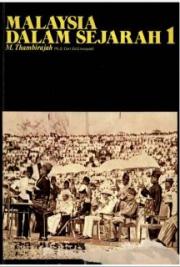Ancient Egyptian government
The government of ancient Egypt was a theocratic monarchy as the king ruled by a mandate from the gods, initially was seen as an intermediary between human beings and the divine, and was supposed to represent the gods' will through the laws passed and policies approved.

Ancient Egyptian Social Pyramid
The Ancient Egyptian people were grouped in a hierarchical system with the Pharaoh at the top and farmers and slaves at the bottom.
Egyptian social classes had some porous borders but they were largely fixed and clearly delineated, not unlike the medieval feudal system. Clearly, the groups of people nearest the top of society were the richest and most powerful.

Ancient Egyptian Pharaoh
was believed to be a God on earth and had the most power. He was responsible for making laws and keeping order, ensuring that Egypt was not attacked or invaded by enemies and for keeping the Gods happy so that the Nile flooded and there was a good harvest.

Ancient Egyptian Vizier
was the Pharaoh’s chief advisor and was sometimes also the High Priest. He was responsible for overseeing administration and all official documents had to have his seal of approval. He was also responsible for the supply of food, settling disputes between nobles and the running and protection of the Pharaoh’s household.

Ancient Egyptian Nobles
ruled the regions of Egypt (Nomes). They were responsible for making local laws and keeping order in their region.

Ancient Egyptian Priests
were responsible for keeping the Gods happy. They did not preach to people but spent their time performing rituals and ceremonies to the God of their temple.

Ancient Egyptian Scribes
were the only people who could read and write and were responsible for keeping records. The ancient Egyptians recorded things such as how much food was produced at harvest time, how many soldiers were in the army, numbers of workers and the number of gifts given to the Gods.

Ancient Egyptian Soldiers
were responsible for the defense of the country. Many second sons, including those of the Pharaoh often chose to join the army. Soldiers were allowed to share riches captured from enemies and were also rewarded with land for their service to the country.

Ancient Egyptian Merchants
actually, they were more like traders carried products such as gold, papyrus made into writing paper or twisted into rope, linen cloth, and jewelry to other countries. In exchange, they brought back cedar and ebony wood, elephant tusks, panther skins, giraffe tails for fly whisks, and animals such as baboons and lions for the temples or palaces.

Ancient Egyptian Craftsmen
were skilled workers such as – pottery makers, leatherworkers, sculptors, painters, weavers, jewelry makers, shoemakers, tailors. Groups of craftsmen often worked together in workshops.

Ancient Egyptian Peasants
worked the land of the Pharaoh and nobles and were given housing, food and clothes in return. Some farmers rented land from nobles and had to pay a percentage of their crop as their rent.

Ancient Egyptian Slaves
There were no slave markets or auctions in Ancient Egypt. Slaves were usually prisoners captured in war. Slaves could be found in the households of the Pharaoh and nobles, working in mines and quarries and also in temples.

This presentation written And collected by author of Egy King blog (egy-king.com) , It summarizes the Social Pyramid in Ancient Egypt .
Resources :-
• Ancient Egyptian Social Pyramid
• Ancient Egyptian Government
• Ancient Egyptian Government Officials
• Ancient Egypt Social Structure
• Ancient Egyptian Pharaohs
• Ancient Egyptian Viziers
• Ancient Egyptian Nobles
• Ancient Egyptian Priests
• What did Scribes do in Ancient Egypt
• Ancient Egyptian Soldiers
• Ancient Egyptian Merchants
• Ancient Egypt Craftsmen
• Ancient Egyptian Peasants
• Ancient Egyptian slaves



















